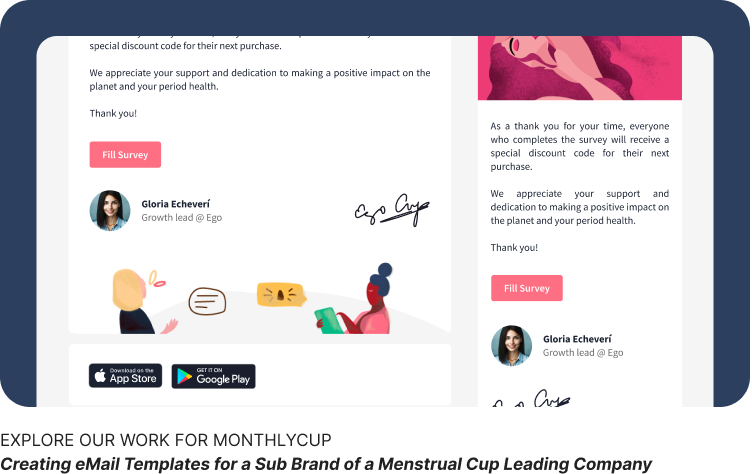Content & Marketing
Content Creation & Augmentation

Let's outline the process of transcription and data extraction, incorporating the use of AI tools to streamline the workflow:
1. Source Material Preparation:
-
Obtain the audio/video files: Secure the raw podcast or long-format conversation recordings in a suitable format (e.g., MP3, WAV, MP4).
-
Pre-processing (if necessary): Enhance audio quality if needed, reducing background noise or adjusting volume levels for optimal transcription accuracy.
2. Transcription:
-
AI-Powered Transcription: Utilize AI transcription services like Otter.ai, Trint, or Descript to automatically convert audio/video into text. These tools leverage machine learning algorithms to transcribe speech with impressive accuracy and speed.
-
Manual Review & Correction: While AI transcription is efficient, it's essential to have a human review the transcripts to correct any errors, ensure proper formatting, and add punctuation for clarity.
3. Data Extraction & Analysis:
-
AI-Assisted Keyword & Theme Identification: Employ AI tools to identify key themes, topics, and recurring keywords within the transcripts. This helps to quickly grasp the core concepts and identify potential content angles.
-
Manual Review & Annotation: Human reviewers carefully analyze the transcripts, highlighting key quotes,statistics, actionable insights, and other valuable data points. This ensures accuracy and context preservation.
-
Data Organization & Categorization: Structure the extracted data into a usable format, categorizing it by topic,speaker, or other relevant criteria. This facilitates easy access and repurposing of the information.
4. Content Augmentation & Repurposing:
-
Content Planning: Develop a content strategy based on the extracted data, identifying opportunities for blog posts,e-books, social media snippets, infographics, and other formats.
-
Content Creation: Leverage the extracted quotes, insights, and data points to create compelling and informative content that aligns with the target audience and marketing goals.
-
SEO Optimization: Ensure the repurposed content is optimized for search engines by incorporating relevant keywords and metadata.
-
Content Distribution & Promotion: Share the repurposed content across various channels, including social media,email marketing, and your website, to maximize reach and engagement.
Benefits of AI Integration:
-
Increased Efficiency: AI transcription and data extraction tools significantly speed up the process, saving time and resources.
-
Improved Accuracy: AI transcription services continue to improve in accuracy, reducing the need for extensive manual corrections.
-
Enhanced Insights: AI-powered analysis can uncover hidden patterns and trends in the data, providing valuable insights for content creation and marketing strategies.
By combining the power of AI with human expertise, Quo Agency can efficiently transform long-format conversations into a wealth of valuable content assets, empowering clients to amplify their message and achieve their marketing goals.
Lead magnets are valuable pieces of content offered to potential customers in exchange for their contact information, typically an email address. They serve as a powerful tool for attracting and capturing leads, building email lists, and nurturing prospects through the sales funnel.
Types and Examples of Lead Magnets:
-
E-books & Guides: In-depth resources that provide valuable information and insights on a specific topic relevant to your target audience.
-
Checklists & Templates: Actionable tools that help users simplify tasks or achieve specific goals.
-
Webinars & Workshops: Live or recorded online events that offer educational content and opportunities for interaction.
-
Case Studies & White Papers: In-depth analyses of successful projects or industry trends that demonstrate your expertise and thought leadership.
-
Free Trials & Demos: Offer a limited-time trial or demonstration of your product or service to showcase its value and encourage conversions.
-
Discount Codes & Exclusive Offers: Provide special incentives to entice potential customers to take action.
Process of Creating Lead Magnets:
-
Identify Target Audience & Pain Points: Understand your ideal customer and their challenges to create a lead magnet that addresses their specific needs.
-
Choose the Right Format: Select a format that aligns with your audience's preferences and the type of information you want to share.
-
Create High-Quality Content: Develop valuable, informative, and engaging content that provides a solution or addresses a pain point for your target audience.
-
Design & Packaging: Create an attractive and professional design for your lead magnet, ensuring it's visually appealing and easy to consume.
-
Landing Page & Promotion: Create a dedicated landing page to showcase your lead magnet and promote it through various channels, such as social media, email marketing, and paid advertising.
-
Lead Capture & Nurturing: Implement a lead capture form on your landing page to collect contact information and follow up with leads through targeted email campaigns to nurture them towards conversion.
By creating compelling and relevant lead magnets, Quo Agency can help clients attract high-quality leads, build their email lists, and establish themselves as trusted authorities in their industry.
Blog Posts are short, frequent pieces of content that cover a wider range of topics. They can be used to share company news, industry insights, thought leadership, or product updates. Blog posts are ideal for driving organic traffic, engaging with your audience, and establishing your brand as a thought leader.
Blog posts have the potential to benefit a wide range of industries, each in different ways. However, certain sectors are particularly well-suited to leverage blog content to enhance their marketing and communication efforts. Let's highlight a few examples:
-
Technology & SaaS: Blog posts can be used to educate audiences about complex technologies, demonstrate thought leadership, and attract potential customers through informative content.
-
Healthcare & Pharmaceuticals: Blogs offer a platform to share health-related information, answer patient questions, and build trust with potential clients.
-
Financial Services: Blogs can be used to explain financial concepts, provide market analysis, and position businesses as trusted advisors in the financial industry.
-
E-commerce & Retail: Blogs can drive traffic to online stores, showcase products, and provide valuable information that helps customers make informed purchasing decisions.
-
Education: Blogs can share educational resources, provide updates on industry trends, and attract students and educators.
-
Professional Services: Blogs can showcase expertise, demonstrate thought leadership, and attract potential clients in industries like law, consulting, and marketing.
-
Travel & Hospitality: Blogs can inspire travelers, showcase destinations, and provide valuable tips for planning trips.
These are just a few examples, and virtually any industry can benefit from well-crafted blog posts.
The key lies in creating relevant and engaging content that resonates with your target audience and addresses their pain points. By providing valuable information and insights, you can build trust, establish authority, and drive meaningful engagement with your brand.
Leveraging long-format conversations as the source material for social media posts is a smart strategy for several reasons:
- Relevance and Value: Long-format conversations, such as podcasts or interviews, often delve deep into specific topics, providing valuable insights and perspectives. By extracting key points, quotes, or anecdotes from these conversations, you can create social media posts that are both relevant and informative to your target audience.
- Authenticity and Engagement: Content derived from real conversations tends to be more authentic and engaging than generic marketing messages. It allows you to showcase the personalities and expertise of your clients or thought leaders, fostering a deeper connection with your audience.
- SEO Benefits: Repurposing long-format content into social media posts can also contribute to your SEO efforts.By including relevant keywords and linking back to the original content, you can increase visibility and drive traffic to your website or podcast.
Infographics & Visuals & Workshop Content involves creating original visual content that conveys information or tells a story in a concise and engaging way. This includes:
-
Infographics: Visual representations of data, statistics, or processes, using charts, graphs, and illustrations to simplify complex information.
-
Visuals: Images, photos, and other visual elements used to enhance written content or create standalone visual stories.
-
Workshop Content: Presentations, slide decks, and other materials used to deliver educational or training sessions.
While both categories involve creating engaging content, the key difference lies in the source material. Micro-podcasts,audiograms, and short video capsules repurpose existing long-form content, while infographics, visuals, and workshop content are created from scratch to present new information or ideas in a visually appealing way.
Digital Marketing Campaigns
While each channel has its own unique strengths and characteristics, they can be strategically coordinated to create a cohesive and impactful marketing campaign.

Digital ad campaigns are a crucial component of a comprehensive digital marketing strategy. They involve creating and managing paid advertisements across various online platforms, such as search engines, social media, display networks,and video platforms.
The connection between digital ad campaigns and the other services offered by Quo Agency lies in their synergistic relationship in achieving marketing objectives.
-
Websites and Landing Pages: Effective ad campaigns often direct users to specific landing pages or sections of a website. Quo Agency's expertise in web design and development ensures that these landing pages are optimized for conversions, providing a seamless user experience and maximizing the return on ad spend.
-
Content Creation & Augmentation: Compelling ad copy and visuals are essential for capturing attention and driving clicks. Quo Agency's content creation and augmentation services can be leveraged to develop persuasive ad copy, eye-catching graphics, and engaging video content that resonates with the target audience.
-
Social Media Content: Social media platforms are major channels for digital advertising. Quo Agency's social media expertise can be utilized to create and manage social media ad campaigns, ensuring they align with the overall brand strategy and achieve optimal reach and engagement.
-
Video Production: Video ads are increasingly popular and effective in capturing attention and conveying brand messages. Quo Agency's video production capabilities can be utilized to create high-quality video ads that drive results.
-
Graphic Design & Illustration: Eye-catching visuals are crucial for successful digital ad campaigns. Quo Agency's graphic design and illustration services can be leveraged to create compelling ad graphics, banners, and other visual assets that stand out and drive clicks.
In essence, digital ad campaigns are an integral part of the marketing mix, and Quo Agency's diverse talent pool and service offerings can support various aspects of campaign creation, execution, and optimization. By integrating digital ad campaigns with other services like web development, content creation, and graphic design, Quo Agency can provide clients with a holistic approach to digital marketing that drives results and maximizes ROI.
Social media is a multifaceted tool that can be leveraged to achieve a wide range of marketing and business objectives. It's an essential component of any modern brand's digital strategy, enabling them to connect with their audience, build relationships, and drive growth.
For instance, social media content can play a significant role in supporting SEO efforts.
Here's how:
- Content Amplification: Engaging social media content can attract attention and encourage shares, increasing the reach of your website or blog posts. This wider exposure can lead to more opportunities for other websites to discover and link to your content, thus contributing to link building.
- Brand Building & Authority: A strong social media presence helps establish your brand as a thought leader and authority in your industry. This can make other websites more likely to link to your content, as they see you as a credible source of information.
- Relationship Building: Social media provides a platform for connecting with influencers, industry leaders, and potential partners. These relationships can lead to guest posting opportunities, collaborations, and other link-building opportunities.
- Social Signals: While not a direct ranking factor, social signals (likes, shares, comments) can indirectly influence search engine rankings by indicating the popularity and relevance of your content.
In essence, social media content acts as a catalyst for link building and off-page SEO efforts. By creating engaging and shareable content, you can increase your brand's visibility, attract backlinks, and improve your overall search engine rankings.
Social media's role extends far beyond just SEO. It's a dynamic tool that empowers brands to:
-
Build Brand Awareness & Community: Create a strong online presence, engage with your audience, and foster a loyal community around your brand.
-
Drive Website Traffic & Conversions: Share links to your website, blog posts, and landing pages to attract visitors and generate leads or sales.
-
Showcase Products & Services: Highlight your offerings through visually appealing posts, videos, and customer testimonials.
-
Provide Customer Service & Support: Respond to inquiries, address concerns, and build relationships with customers in real-time.
-
Conduct Market Research & Gather Feedback: Gain valuable insights into your target audience's preferences,interests, and pain points.
-
Run Targeted Advertising Campaigns: Reach specific demographics and interests with precision targeting and ad formats.
-
Stay Ahead of the Competition: Monitor industry trends, competitor activity, and customer sentiment to stay informed and adapt your strategies.
In essence, social media is a multifaceted tool that can be leveraged to achieve a wide range of marketing and business objectives. It's an essential component of any modern brand's digital strategy, enabling them to connect with their audience, build relationships, and drive growth.

Email campaigns are a series of strategically planned and executed emails sent to a targeted list of subscribers. They serve various purposes, such as promoting products or services, nurturing leads, building customer relationships, and driving conversions.
Within the context of Quo Agency's services, email campaigns involve:
-
Conceptualization and Strategy: Defining the campaign's goals, target audience, messaging, and key performance indicators (KPIs).
-
Content Creation: Crafting compelling email copy, subject lines, and calls to action that resonate with the target audience and encourage them to take the desired action.
-
Design and Layout: Creating visually appealing and user-friendly email templates that reflect the brand's identity and enhance the overall user experience.
-
Segmentation and Personalization: Dividing the subscriber list into segments based on demographics, interests, or behavior, and tailoring email content to each segment for increased relevance and engagement.
-
Automation and Workflow: Setting up automated email sequences triggered by specific actions or events, such as welcome emails, abandoned cart reminders, or post-purchase follow-ups.
-
Testing and Optimization: Conducting A/B testing on different email elements, such as subject lines, calls to action, and design layouts, to identify the most effective strategies and improve campaign performance.
-
Analytics and Reporting: Tracking and analyzing key metrics, such as open rates, click-through rates, and conversions, to measure campaign success and identify areas for improvement.
By offering email campaign services, Quo Agency can help busy marketing teams create and execute effective email marketing strategies that drive results and achieve their business goals.
Then, email templates are essentially the HTML structure that defines the layout, design, and content placement of an email. These templates are then uploaded to email marketing platforms like Mailchimp or HubSpot, where they can be populated with dynamic content and sent to subscribers.
The usefulness of creating custom email templates lies in several key areas:
-
Brand Consistency: Templates ensure that all your emails maintain a consistent look and feel, reinforcing your brand identity and creating a cohesive experience for subscribers.
-
Efficiency & Scalability: Templates streamline the email creation process, allowing you to quickly create and send professional-looking emails without starting from scratch each time. This is especially valuable for busy marketing teams managing multiple campaigns.
-
Improved User Experience: Well-designed templates enhance the readability and visual appeal of your emails,leading to better engagement and higher click-through rates.
-
Mobile Optimization: Templates can be designed to be responsive across various devices, ensuring your emails look great on desktops, tablets, and smartphones.
-
Personalization: Templates can incorporate dynamic content blocks that allow for personalized messaging based on subscriber data, increasing relevance and engagement.
-
Testing & Optimization: By creating different template variations, you can conduct A/B testing to identify the most effective designs and layouts for your audience.
In essence, custom email templates provide a powerful tool for busy marketing teams to create professional, engaging,and effective email campaigns that drive results.





